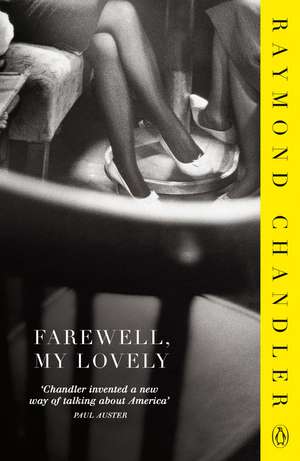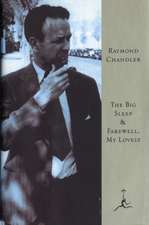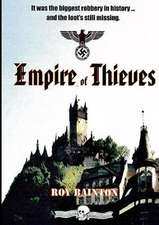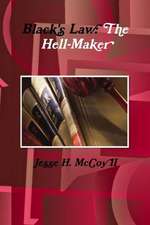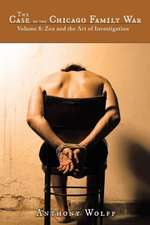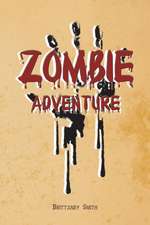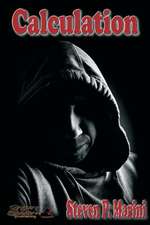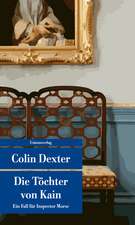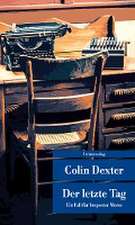Farewell, My Lovely: Phillip Marlowe
Autor Raymond Chandler Introducere de Colin Dexteren Limba Engleză Paperback – 27 oct 2010
Cynical Los Angeles Private Investigator Philip Marlowe always falls for a sob story. Eight years ago Moose Malloy and cute little redhead Velma were getting married - until Malloy was framed for armed robbery. Now he's out and he wants Velma back. Marlowe meets Malloy one hot day in Hollywood and, out of the generosity of his jaded heart, agrees to help. Dragged from one smoky bar to another, Marlowe's search for Velma turns up plenty of gangsters with a nasty habit of shooting first and talking later. And soon what started as a search for a missing person becomes a matter of life and death . . .
Farewell, My Lovelyis Raymond Chandler's second novel featuring laconic PI Philip Marlowe.
'Chandler grips the mind from the first sentence'Daily Telegraph
'One of the greatest crime writers, who set standards others still try to attain'Sunday Times
'Chandler is an original stylist, creator of a character as immortal as Sherlock Holmes' Anthony Burgess
Discover the newest addition to the inimitable Philip Marlowe series -Only to Sleepby Lawrence Osborne - out 6 September 2018 in hardback and ebook from Hogarth.
| Toate formatele și edițiile | Preț | Express |
|---|---|---|
| Paperback (3) | 63.54 lei 3-5 săpt. | +9.17 lei 7-13 zile |
| Penguin Books – 27 oct 2010 | 63.54 lei 3-5 săpt. | +9.17 lei 7-13 zile |
| Vintage Crime/Black Lizard – 31 oct 2005 | 90.35 lei 3-5 săpt. | +25.39 lei 7-13 zile |
| Important Books – 25 noi 2013 | 68.01 lei 38-44 zile |
Preț: 63.54 lei
Nou
Puncte Express: 95
Preț estimativ în valută:
12.16€ • 12.69$ • 10.06£
12.16€ • 12.69$ • 10.06£
Carte disponibilă
Livrare economică 15-29 martie
Livrare express 01-07 martie pentru 19.16 lei
Preluare comenzi: 021 569.72.76
Specificații
ISBN-13: 9780241954355
ISBN-10: 0241954355
Pagini: 320
Dimensiuni: 129 x 198 x 19 mm
Greutate: 0.22 kg
Editura: Penguin Books
Colecția Penguin
Seria Phillip Marlowe
Locul publicării:London, United Kingdom
ISBN-10: 0241954355
Pagini: 320
Dimensiuni: 129 x 198 x 19 mm
Greutate: 0.22 kg
Editura: Penguin Books
Colecția Penguin
Seria Phillip Marlowe
Locul publicării:London, United Kingdom
Notă biografică
Best-known
as
the
creator
of
the
original
private
eye,
Philip
Marlowe,
Raymond
Chandler
was
born
in
Chicago
in
1888
and
died
in
1959.
Many
of
his
books
have
been
adapted
for
the
screen,
and
he
is
widely
regarded
as
one
of
the
very
greatest
writers
of
detective
fiction.
Extras
ONE
It was one of the mixed blocks over on Central Avenue, the blocks that are not yet all Negro. I had just come out of a three-chair barber shop where an agency thought a relief barber named Dimitrios Aleidis might be working. It was a small matter. His wife said she was willing to spend a little money to have him come home.
I never found him, but Mrs. Aleidis never paid me any money either.
It was a warm day, almost the end of March, and I stood outside the barber shop looking up at the jutting neon sign of a second floor dine and dice emporium called Florian's. A man was looking up at the sign too. He was looking up at the dusty windows with a sort of ecstatic fixity of expression, like a hunky immigrant catching his first sight of the Statue of Liberty. He was a big man but not more than six feet five inches tall and not wider than a beer truck. He was about ten feet away from me. His arms hung loose at his sides and a forgotten cigar smoked behind his enormous fingers.
Slim quiet Negroes passed up and down the street and stared at him with darting side glances. He was worth looking at. He wore a shaggy borsalino hat, a rough gray sports coat with white golf balls on it for buttons, a brown shirt, a yellow tie, pleated gray flannel slacks and alligator shoes with white explosions on the toes. From his outer breast pocket cascaded a show handkerchief of the same brilliant yellow as his tie. There were a couple of colored feathers tucked into the band of his hat, but he didn't really need them. Even on Central Avenue, not the quietest dressed street in the world, he looked about as inconspicuous as a tarantula on a slice of angel food.
His skin was pale and he needed a shave. He would always need a shave. He had curly black hair and heavy eyebrows that almost met over his thick nose. His ears were small and neat for a man of that size and his eyes had a shine close to tears that gray eyes often seem to have. He stood like a statue, and after a long time he smiled.
He moved slowly across the sidewalk to the double swinging doors which shut off the stairs to the second floor. He pushed them open, cast a cool expressionless glance up and down the street, and moved inside. If he had been a smaller man and more quietly dressed, I might have thought he was going to pull a stick-up. But not in those clothes, and not with that hat, and that frame.
The doors swung back outwards and almost settled to a stop. Before they had entirely stopped moving they opened again, violently, outwards. Something sailed across the sidewalk and landed in the gutter between two parked cars. It landed on its hands and knees and made a high keening noise like a cornered rat. It got up slowly, retrieved a hat and stepped back onto the sidewalk. It was a thin, narrow-shouldered brown youth in a lilac colored suit and a carnation. It had slick black hair. It kept its mouth open and whined for a moment. People stared at it vaguely. Then it settled its hat jauntily, sidled over to the wall and walked silently splay-footed off along the block.
Silence. Traffic resumed. I walked along to the double doors and stood in front of them. They were motionless now. It wasn't any of my business. So I pushed them open and looked in.
A hand I could have sat in came out of the dimness and took hold of my shoulder and squashed it to a pulp. Then the hand moved me through the doors and casually lifted me up a step. The large face looked at me. A deep soft voice said to me, quietly:
"Smokes in here, huh? Tie that for me, pal."
It was dark in there. It was quiet. From up above came vague sounds of humanity, but we were alone on the stairs. The big man stared at me solemnly and went on wrecking my shoulder with his hand.
"A dinge," he said. "I just thrown him out. You seen me throw him out?"
He let go of my shoulder. The bone didn't seem to be broken, but the arm was numb.
"It's that kind of a place," I said, rubbing my shoulder. "What did you expect?"
"Don't say that, pal," the big man purred softly, like four tigers after dinner. "Velma used to work here. Little Velma."
He reached for my shoulder again. I tried to dodge him but he was as fast as a cat. He began to chew my muscles up some more with his iron fingers.
"Yeah," he said. "Little Velma. I ain't seen her in eight years. You say this here is a dinge joint?"
I croaked that it was.
He lifted me up two more steps. I wrenched myself loose and tried for a little elbow room. I wasn't wearing a gun. Looking for Dimitrios Aleidis hadn't seemed to require it. I doubted if it would do me any good. The big man would probably take it away from me and eat it.
"Go on up and see for yourself," I said, trying to keep the agony out of my voice.
He let go of me again. He looked at me with a sort of sadness in his gray eyes. "I'm feelin' good," he said. "I wouldn't want anybody to fuss with me. Let's you and me go on up and maybe nibble a couple."
"They won't serve you. I told you it's a colored joint."
"I ain't seen Velma in eight years," he said in his deep sad voice. "Eight long years since I said good-by. She ain't wrote to me in six. But she'll have a reason. She used to work here. Cute she was. Let's you and me go on up, huh?"
"All right," I yelled. "I'll go up with you. Just lay off carrying me. Let me walk. I'm fine. I'm all grown up. I go to the bathroom alone and everything. Just don't carry me."
"Little Velma used to work here," he said gently. He wasn't listening to me.
We went on up the stairs. He let me walk. My shoulder ached. The back of my neck was wet.
TWO
Two more swing doors closed off the head of the stairs from whatever was beyond. The big man pushed them open lightly with his thumbs and we went into the room. It was a long narrow room, not very clean, not very bright, not very cheerful. In the corner a group of Negroes chanted and chattered in the cone of light over a crap table. There was a bar against the right hand wall. The rest of the room was mostly small round tables. There were a few customers, men and women, all Negroes.
The chanting at the crap table stopped dead and the light over it jerked out. There was a sudden silence as heavy as a water-logged boat. Eyes looked at us, chestnut colored eyes, set in faces that ranged from gray to deep black. Heads turned slowly and the eyes in them glistened and stared in the dead alien silence of another race.
A large, thick-necked Negro was leaning against the end of the bar with pink garters on his shirt sleeves and pink and white suspenders crossing his broad back. He had bouncer written all over him. He put his lifted foot down slowly and turned slowly and stared at us, spreading his feet gently and moving a broad tongue along his lips. He had a battered face that looked as if it had been hit by everything but the bucket of a dragline. It was scarred, flattened, thickened, checkered, and welted. It was a face that had nothing to fear. Everything had been done to it that anybody could think of.
The short crinkled hair had a touch of gray. One ear had lost the lobe.
The Negro was heavy and wide. He had big heavy legs and they looked a little bowed, which is unusual in a Negro. He moved his tongue some more and smiled and moved his body. He came towards us in a loose fighter's crouch. The big man waited for him silently.
The Negro with the pink garters on his arms put a massive brown hand against the big man's chest. Large as it was, the hand looked like a stud. The big man didn't move. The bouncer smiled gently.
"No white folks, brother. Jes' fo' the colored people. I'se sorry."
The big man moved his small sad gray eyes and looked around the room. His cheeks flushed a little. "Shine box," he said angrily, under his breath. He raised his voice. "Where's Velma at?" he asked the bouncer.
The bouncer didn't quite laugh. He studied the big man's clothes, his brown shirt and yellow tie, his rough gray coat and the white golf balls on it. He moved his thick head around delicately and studied all this from various angles. He looked down at the alligator shoes. He chuckled lightly. He seemed amused. I felt a little sorry for him. He spoke softly again.
"Velma, you says? No Velma heah, brother. No hooch, no gals, no nothing. Jes' the scram, white boy, jes' the scram."
"Velma used to work here," the big man said. He spoke almost dreamily, as if he was all by himself, out in the woods, picking johnny-jump-ups. I got my handkerchief out and wiped the back of my neck again.
The bouncer laughed suddenly. "Shuah," he said, throwing a quick look back over his shoulder at his public. "Velma used to work heah. But Velma don't work heah no mo'. She done reti'ed. Haw, haw."
"Kind of take your goddamned mitt off my shirt," the big man said.
The bouncer frowned. He was not used to being talked to like that. He took his hand off the shirt and doubled it into a fist about the size and color of a large eggplant. He had his job, his reputation for toughness, his public esteem to consider. He considered them for a second and made a mistake. He swung the fist very hard and short with a sudden outward jerk of the elbow and hit the big man on the side of the jaw. A soft sigh went around the room.
It was a good punch. The shoulder dropped and the body swung behind it. There was a lot of weight in that punch and the man who landed it had had plenty of practice. The big man didn't move his head more than an inch. He didn't try to block the punch. He took it, shook himself lightly, made a quiet sound in his throat and took hold of the bouncer by the throat.
The bouncer tried to knee him in the groin. The big man turned him in the air and slid his gaudy shoes apart on the scaly linoleum that covered the floor. He bent the bouncer backwards and shifted his right hand to the bouncer's belt. The belt broke like a piece of butcher's string. The big man put his enormous hands flat against the bouncer's spine and heaved. He threw him clear across the room, spinning and staggering and flailing with his arms. Three men jumped out of the way. The bouncer went over with a table and smacked into the baseboard with a crash that must have been heard in Denver. His legs twitched. Then he lay still.
"Some guys," the big man said, "has got wrong ideas about when to get tough." He turned to me. "Yeah," he said. "Let's you and me nibble one."
We went over to the bar. The customers, by ones and twos and threes, became quiet shadows that drifted soundless across the floor, soundless through the doors at the head of the stairs. Soundless as shadows on the grass. They didn't even let the doors swing.
We leaned against the bar. "Whiskey sour," the big man said. "Call yours."
"Whiskey sour," I said.
We had whiskey sours.
The big man licked his whiskey sour impassively down the side of the thick squat glass. He stared solemnly at the barman, a thin, worried-looking Negro in a white coat who moved as if his feet hurt him.
"You know where Velma is?"
"Velma, you says?" the barman whined. "I ain't seen her 'round heah lately. Not right lately, nossuh."
"How long you been here?"
"Let's see," the barman put his towel down and wrinkled his forehead and started to count on his fingers. "'Bout ten months, I reckon. 'Bout a yeah. 'Bout--"
"Make your mind up," the big man said.
The barman goggled and his Adam's apple flopped around like a headless chicken.
"How long's this coop been a dinge joint?" the big man demanded gruffly.
"Says which?"
The big man made a fist into which his whiskey sour glass melted almost out of sight.
"Five years anyway," I said. "This fellow wouldn't know anything about a white girl named Velma. Nobody here would."
The big man looked at me as if I had just hatched out. His whiskey sour hadn't seemed to improve his temper.
"Who the hell asked you to stick your face in?" he asked me.
I smiled. I made it a big warm friendly smile. "I'm the fellow that came in with you. Remember?"
He grinned back then, a flat white grin without meaning. "Whiskey sour," he told the barman. "Shake them fleas outa your pants. Service."
The barman scuttled around, rolling the whites of his eyes. I put my back against the bar and looked at the room. It was now empty, save for the barman, the big man and myself, and the bouncer crushed over against the wall. The bouncer was moving. He was moving slowly as if with great pain and effort. He was crawling softly along the baseboard like a fly with one wing. He was moving behind the tables, wearily, a man suddenly old, suddenly disillusioned. I watched him move. The barman put down two more whiskey sours. I turned to the bar. The big man glanced casually over at the crawling bouncer and then paid no further attention to him.
"There ain't nothing left of the joint," he complained. "They was a little stage and band and cute little rooms where a guy could have fun. Velma did some warbling. A redhead she was. Cute as lace pants. We was to of been married when they hung the frame on me."
I took my second whiskey sour. I was beginning to have enough of the adventure. "What frame?" I asked.
It was one of the mixed blocks over on Central Avenue, the blocks that are not yet all Negro. I had just come out of a three-chair barber shop where an agency thought a relief barber named Dimitrios Aleidis might be working. It was a small matter. His wife said she was willing to spend a little money to have him come home.
I never found him, but Mrs. Aleidis never paid me any money either.
It was a warm day, almost the end of March, and I stood outside the barber shop looking up at the jutting neon sign of a second floor dine and dice emporium called Florian's. A man was looking up at the sign too. He was looking up at the dusty windows with a sort of ecstatic fixity of expression, like a hunky immigrant catching his first sight of the Statue of Liberty. He was a big man but not more than six feet five inches tall and not wider than a beer truck. He was about ten feet away from me. His arms hung loose at his sides and a forgotten cigar smoked behind his enormous fingers.
Slim quiet Negroes passed up and down the street and stared at him with darting side glances. He was worth looking at. He wore a shaggy borsalino hat, a rough gray sports coat with white golf balls on it for buttons, a brown shirt, a yellow tie, pleated gray flannel slacks and alligator shoes with white explosions on the toes. From his outer breast pocket cascaded a show handkerchief of the same brilliant yellow as his tie. There were a couple of colored feathers tucked into the band of his hat, but he didn't really need them. Even on Central Avenue, not the quietest dressed street in the world, he looked about as inconspicuous as a tarantula on a slice of angel food.
His skin was pale and he needed a shave. He would always need a shave. He had curly black hair and heavy eyebrows that almost met over his thick nose. His ears were small and neat for a man of that size and his eyes had a shine close to tears that gray eyes often seem to have. He stood like a statue, and after a long time he smiled.
He moved slowly across the sidewalk to the double swinging doors which shut off the stairs to the second floor. He pushed them open, cast a cool expressionless glance up and down the street, and moved inside. If he had been a smaller man and more quietly dressed, I might have thought he was going to pull a stick-up. But not in those clothes, and not with that hat, and that frame.
The doors swung back outwards and almost settled to a stop. Before they had entirely stopped moving they opened again, violently, outwards. Something sailed across the sidewalk and landed in the gutter between two parked cars. It landed on its hands and knees and made a high keening noise like a cornered rat. It got up slowly, retrieved a hat and stepped back onto the sidewalk. It was a thin, narrow-shouldered brown youth in a lilac colored suit and a carnation. It had slick black hair. It kept its mouth open and whined for a moment. People stared at it vaguely. Then it settled its hat jauntily, sidled over to the wall and walked silently splay-footed off along the block.
Silence. Traffic resumed. I walked along to the double doors and stood in front of them. They were motionless now. It wasn't any of my business. So I pushed them open and looked in.
A hand I could have sat in came out of the dimness and took hold of my shoulder and squashed it to a pulp. Then the hand moved me through the doors and casually lifted me up a step. The large face looked at me. A deep soft voice said to me, quietly:
"Smokes in here, huh? Tie that for me, pal."
It was dark in there. It was quiet. From up above came vague sounds of humanity, but we were alone on the stairs. The big man stared at me solemnly and went on wrecking my shoulder with his hand.
"A dinge," he said. "I just thrown him out. You seen me throw him out?"
He let go of my shoulder. The bone didn't seem to be broken, but the arm was numb.
"It's that kind of a place," I said, rubbing my shoulder. "What did you expect?"
"Don't say that, pal," the big man purred softly, like four tigers after dinner. "Velma used to work here. Little Velma."
He reached for my shoulder again. I tried to dodge him but he was as fast as a cat. He began to chew my muscles up some more with his iron fingers.
"Yeah," he said. "Little Velma. I ain't seen her in eight years. You say this here is a dinge joint?"
I croaked that it was.
He lifted me up two more steps. I wrenched myself loose and tried for a little elbow room. I wasn't wearing a gun. Looking for Dimitrios Aleidis hadn't seemed to require it. I doubted if it would do me any good. The big man would probably take it away from me and eat it.
"Go on up and see for yourself," I said, trying to keep the agony out of my voice.
He let go of me again. He looked at me with a sort of sadness in his gray eyes. "I'm feelin' good," he said. "I wouldn't want anybody to fuss with me. Let's you and me go on up and maybe nibble a couple."
"They won't serve you. I told you it's a colored joint."
"I ain't seen Velma in eight years," he said in his deep sad voice. "Eight long years since I said good-by. She ain't wrote to me in six. But she'll have a reason. She used to work here. Cute she was. Let's you and me go on up, huh?"
"All right," I yelled. "I'll go up with you. Just lay off carrying me. Let me walk. I'm fine. I'm all grown up. I go to the bathroom alone and everything. Just don't carry me."
"Little Velma used to work here," he said gently. He wasn't listening to me.
We went on up the stairs. He let me walk. My shoulder ached. The back of my neck was wet.
TWO
Two more swing doors closed off the head of the stairs from whatever was beyond. The big man pushed them open lightly with his thumbs and we went into the room. It was a long narrow room, not very clean, not very bright, not very cheerful. In the corner a group of Negroes chanted and chattered in the cone of light over a crap table. There was a bar against the right hand wall. The rest of the room was mostly small round tables. There were a few customers, men and women, all Negroes.
The chanting at the crap table stopped dead and the light over it jerked out. There was a sudden silence as heavy as a water-logged boat. Eyes looked at us, chestnut colored eyes, set in faces that ranged from gray to deep black. Heads turned slowly and the eyes in them glistened and stared in the dead alien silence of another race.
A large, thick-necked Negro was leaning against the end of the bar with pink garters on his shirt sleeves and pink and white suspenders crossing his broad back. He had bouncer written all over him. He put his lifted foot down slowly and turned slowly and stared at us, spreading his feet gently and moving a broad tongue along his lips. He had a battered face that looked as if it had been hit by everything but the bucket of a dragline. It was scarred, flattened, thickened, checkered, and welted. It was a face that had nothing to fear. Everything had been done to it that anybody could think of.
The short crinkled hair had a touch of gray. One ear had lost the lobe.
The Negro was heavy and wide. He had big heavy legs and they looked a little bowed, which is unusual in a Negro. He moved his tongue some more and smiled and moved his body. He came towards us in a loose fighter's crouch. The big man waited for him silently.
The Negro with the pink garters on his arms put a massive brown hand against the big man's chest. Large as it was, the hand looked like a stud. The big man didn't move. The bouncer smiled gently.
"No white folks, brother. Jes' fo' the colored people. I'se sorry."
The big man moved his small sad gray eyes and looked around the room. His cheeks flushed a little. "Shine box," he said angrily, under his breath. He raised his voice. "Where's Velma at?" he asked the bouncer.
The bouncer didn't quite laugh. He studied the big man's clothes, his brown shirt and yellow tie, his rough gray coat and the white golf balls on it. He moved his thick head around delicately and studied all this from various angles. He looked down at the alligator shoes. He chuckled lightly. He seemed amused. I felt a little sorry for him. He spoke softly again.
"Velma, you says? No Velma heah, brother. No hooch, no gals, no nothing. Jes' the scram, white boy, jes' the scram."
"Velma used to work here," the big man said. He spoke almost dreamily, as if he was all by himself, out in the woods, picking johnny-jump-ups. I got my handkerchief out and wiped the back of my neck again.
The bouncer laughed suddenly. "Shuah," he said, throwing a quick look back over his shoulder at his public. "Velma used to work heah. But Velma don't work heah no mo'. She done reti'ed. Haw, haw."
"Kind of take your goddamned mitt off my shirt," the big man said.
The bouncer frowned. He was not used to being talked to like that. He took his hand off the shirt and doubled it into a fist about the size and color of a large eggplant. He had his job, his reputation for toughness, his public esteem to consider. He considered them for a second and made a mistake. He swung the fist very hard and short with a sudden outward jerk of the elbow and hit the big man on the side of the jaw. A soft sigh went around the room.
It was a good punch. The shoulder dropped and the body swung behind it. There was a lot of weight in that punch and the man who landed it had had plenty of practice. The big man didn't move his head more than an inch. He didn't try to block the punch. He took it, shook himself lightly, made a quiet sound in his throat and took hold of the bouncer by the throat.
The bouncer tried to knee him in the groin. The big man turned him in the air and slid his gaudy shoes apart on the scaly linoleum that covered the floor. He bent the bouncer backwards and shifted his right hand to the bouncer's belt. The belt broke like a piece of butcher's string. The big man put his enormous hands flat against the bouncer's spine and heaved. He threw him clear across the room, spinning and staggering and flailing with his arms. Three men jumped out of the way. The bouncer went over with a table and smacked into the baseboard with a crash that must have been heard in Denver. His legs twitched. Then he lay still.
"Some guys," the big man said, "has got wrong ideas about when to get tough." He turned to me. "Yeah," he said. "Let's you and me nibble one."
We went over to the bar. The customers, by ones and twos and threes, became quiet shadows that drifted soundless across the floor, soundless through the doors at the head of the stairs. Soundless as shadows on the grass. They didn't even let the doors swing.
We leaned against the bar. "Whiskey sour," the big man said. "Call yours."
"Whiskey sour," I said.
We had whiskey sours.
The big man licked his whiskey sour impassively down the side of the thick squat glass. He stared solemnly at the barman, a thin, worried-looking Negro in a white coat who moved as if his feet hurt him.
"You know where Velma is?"
"Velma, you says?" the barman whined. "I ain't seen her 'round heah lately. Not right lately, nossuh."
"How long you been here?"
"Let's see," the barman put his towel down and wrinkled his forehead and started to count on his fingers. "'Bout ten months, I reckon. 'Bout a yeah. 'Bout--"
"Make your mind up," the big man said.
The barman goggled and his Adam's apple flopped around like a headless chicken.
"How long's this coop been a dinge joint?" the big man demanded gruffly.
"Says which?"
The big man made a fist into which his whiskey sour glass melted almost out of sight.
"Five years anyway," I said. "This fellow wouldn't know anything about a white girl named Velma. Nobody here would."
The big man looked at me as if I had just hatched out. His whiskey sour hadn't seemed to improve his temper.
"Who the hell asked you to stick your face in?" he asked me.
I smiled. I made it a big warm friendly smile. "I'm the fellow that came in with you. Remember?"
He grinned back then, a flat white grin without meaning. "Whiskey sour," he told the barman. "Shake them fleas outa your pants. Service."
The barman scuttled around, rolling the whites of his eyes. I put my back against the bar and looked at the room. It was now empty, save for the barman, the big man and myself, and the bouncer crushed over against the wall. The bouncer was moving. He was moving slowly as if with great pain and effort. He was crawling softly along the baseboard like a fly with one wing. He was moving behind the tables, wearily, a man suddenly old, suddenly disillusioned. I watched him move. The barman put down two more whiskey sours. I turned to the bar. The big man glanced casually over at the crawling bouncer and then paid no further attention to him.
"There ain't nothing left of the joint," he complained. "They was a little stage and band and cute little rooms where a guy could have fun. Velma did some warbling. A redhead she was. Cute as lace pants. We was to of been married when they hung the frame on me."
I took my second whiskey sour. I was beginning to have enough of the adventure. "What frame?" I asked.
Recenzii
"Raymond Chandler is a master." --The New York Times
“[Chandler] wrote as if pain hurt and life mattered.” --The New Yorker
“Chandler seems to have created the culminating American hero: wised up, hopeful, thoughtful, adventurous, sentimental, cynical and rebellious.” --Robert B. Parker, The New York Times Book Review
“Philip Marlowe remains the quintessential urban private eye.” --Los Angeles Times
“Nobody can write like Chandler on his home turf, not even Faulkner. . . . An original. . . . A great artist.” —The Boston Book Review
“Raymond Chandler was one of the finest prose writers of the twentieth century. . . . Age does not wither Chandler’s prose. . . . He wrote like an angel.” --Literary Review
“[T]he prose rises to heights of unselfconscious eloquence, and we realize with a jolt of excitement that we are in the presence of not a mere action tale teller, but a stylist, a writer with a vision.” --Joyce Carol Oates, The New York Review of Books
“Chandler wrote like a slumming angel and invested the sun-blinded streets of Los Angeles with a romantic presence.” —Ross Macdonald
“Raymond Chandler is a star of the first magnitude.” --Erle Stanley Gardner
“Raymond Chandler invented a new way of talking about America, and America has never looked the same to us since.” --Paul Auster
“[Chandler]’s the perfect novelist for our times. He takes us into a different world, a world that’s like ours, but isn’t. ” --Carolyn See
“[Chandler] wrote as if pain hurt and life mattered.” --The New Yorker
“Chandler seems to have created the culminating American hero: wised up, hopeful, thoughtful, adventurous, sentimental, cynical and rebellious.” --Robert B. Parker, The New York Times Book Review
“Philip Marlowe remains the quintessential urban private eye.” --Los Angeles Times
“Nobody can write like Chandler on his home turf, not even Faulkner. . . . An original. . . . A great artist.” —The Boston Book Review
“Raymond Chandler was one of the finest prose writers of the twentieth century. . . . Age does not wither Chandler’s prose. . . . He wrote like an angel.” --Literary Review
“[T]he prose rises to heights of unselfconscious eloquence, and we realize with a jolt of excitement that we are in the presence of not a mere action tale teller, but a stylist, a writer with a vision.” --Joyce Carol Oates, The New York Review of Books
“Chandler wrote like a slumming angel and invested the sun-blinded streets of Los Angeles with a romantic presence.” —Ross Macdonald
“Raymond Chandler is a star of the first magnitude.” --Erle Stanley Gardner
“Raymond Chandler invented a new way of talking about America, and America has never looked the same to us since.” --Paul Auster
“[Chandler]’s the perfect novelist for our times. He takes us into a different world, a world that’s like ours, but isn’t. ” --Carolyn See
Textul de pe ultima copertă
All she did was take her hand out of her bag, with a gun in it. All she did was point it at me and smile. All did was nothing...Moose Malloy stepped out of the dressing room, with the Colt .45 still looking like a toy in his big hairy paw.
